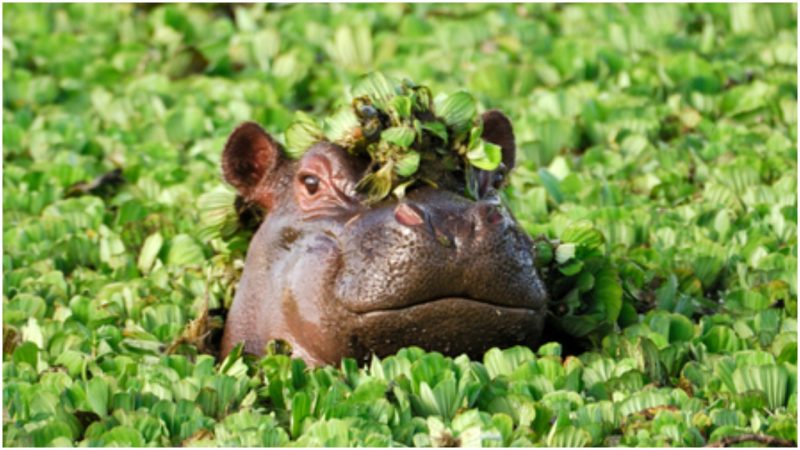In 1910 an extraordinary conversation took place at the House of Representatives, when Congressman Robert F. Broussard of Louisiana opened up discussion of H.R. 23261, or to give it a more familiar title, the “Hippo Bill.”
The bill was designed to address a make or break issue for the future of America, namely the “Meat Question.” With a burgeoning population, the U.S. had eaten its way through the national beef supply.
The days of the cow seemed to be numbered, and hippopotami were being eyed as the next item on the menu.
There was a slight problem, however, in that they weren’t on the same continent as hungry Americans.
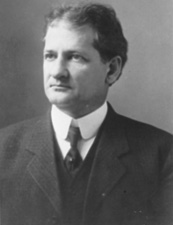
The plan was to bring the animals over from Africa and add this juicy new staple to the food chain. A quarter of a million dollars would be needed to set the plan in motion.
The scheme sounded strange, but compelling. It also took care of another tricky situation for the enterprising Congressman.
At that time Broussard had a major problem in his backyard: water hyacinths.
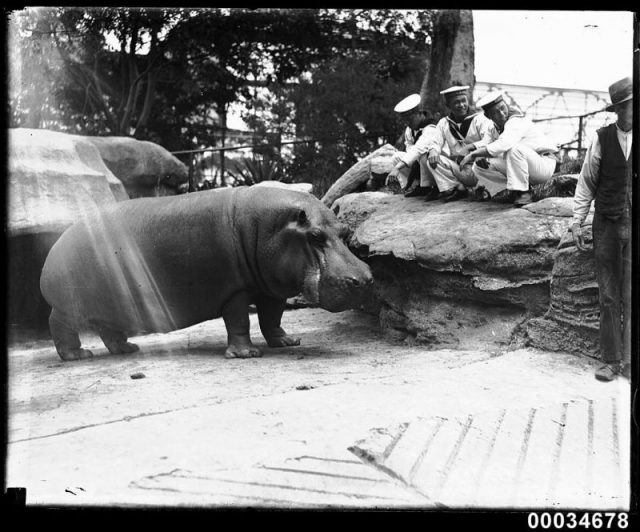
The Japanese introduced the persistent plant to New Orleans as a present in the late 1800s, but this soon turned from a blessing into a curse. The hyacinths had spread and were now clogging up the rivers.
Fish were being wiped out. Something had to be done.
Thankfully for Broussard, a man was waiting in the wings with a bold concept. American Frederick Russell Burnham was a true adventurer and a major inspiration for the international Scout movement. A decorated soldier and a fearless spy, Burnham had spent his fair share of time in inhospitable situations and eaten some weird meals as a result.
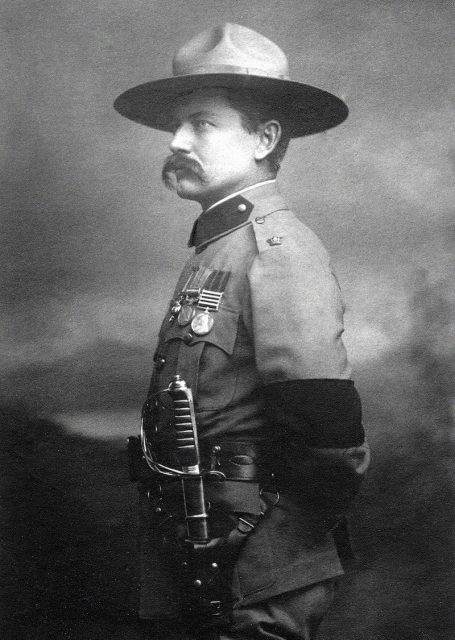
As quoted by author Jon Mooallem (author of American Hippopotamus) in his piece for Atavist magazine, Burnham reasoned that “man’s stomach, like his hand, can be trained to adapt itself to many strange uses.” Burnham believed the hippo was the United States’ salvation, and associated its arrival with a new chapter in the American story.
Some may have thought the plan sounded crazy, but to him it was bold. The media took to his idea, depicting the roaming creature in cozy, familiar terms. The most famous description came from the New York Times, which somewhat optimistically labeled hippos as “lake cow bacon.” Conveniently for Broussard, this bacon source also liked to munch on water hyacinths.
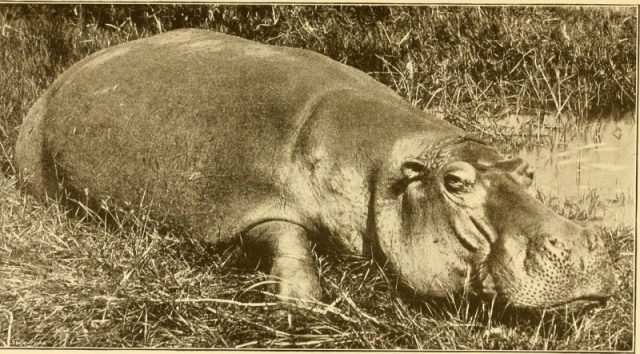
Broussard had brought Burnham to the House in order to talk up the Hippo Bill. However, Burnham wasn’t the only voice in the room. Another expert had been consulted on the matter, and he too spoke in the corridors of power about the benefits of importing African animals.
His name was Fritz Duquesne and he was from South Africa. Like Burnham, he’d served in the military and was renowned for his deadly skills. The pair were certainly aware of one another. In fact they’d spent a lot of time trying to kill each other during the Second Boer War, under orders from their respective governments.
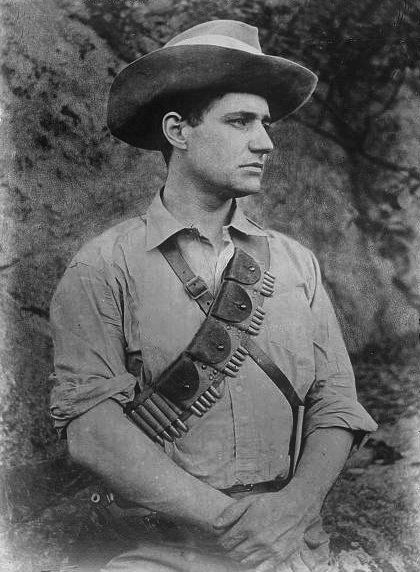
The two men were different in many ways. Burnham was steady as a rock, the “King of the Scouts,” whereas Duquesne was regarded as calculating in his methods. He was referred to by the menacing title “Black Panther of the Veld.”
Having them under the same roof could have been catastrophic for Congressman Broussard. Yet despite this rivalry, the pair had a common goal, and it revolved around the unlikely subject of hippopotamus exploitation.
As Jon Mooallem explained: “These two men will seem larger than life, but they lived at a time, a hundred years ago, when, I would argue, life in America seemed larger than life—when what was unimaginable still felt feasible and ideas that looked ridiculous could still come true.”
Burnham, Broussard, and Duquesne formed a company, the New Food Society, with the aim of promoting their exotic agenda and making H.R. 23261 a reality for American dinner tables. The two soldiers formed a respect for each other in business, putting their professional hatred aside.
It helped that the group’s endeavors had backing from the highest places in government. As detailed by Mooallem, “Theodore Roosevelt, a friend of Burnham’s, had been so impressed with the idea a few years earlier that, newspapers reported, he’d pledged ‘his hearty approval and promise of cooperation.’”
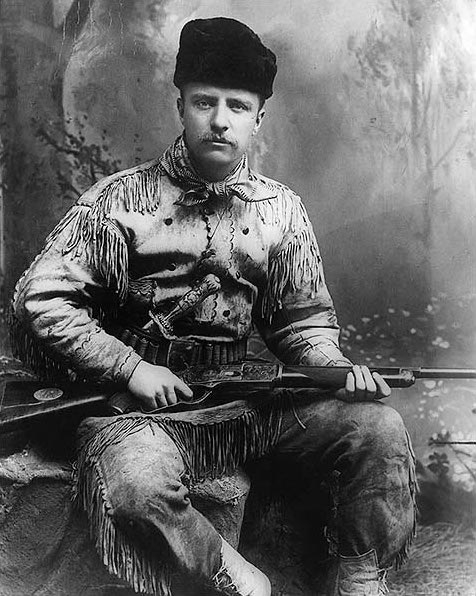
Duquesne had his own association with the former President. When he came to live in America, he advised Roosevelt on hunting tactics for a forthcoming trip to Africa. Then he used his skills as a journalist to write columns for newspapers about what the Commander in Chief might be shooting at over there.
He was adept at self-publicity, developing the theme into a series of lectures. It was natural that Broussard would hear about him, and invite him to become part of his national drive alongside Burnham. Duquesne became the public face of the operation.
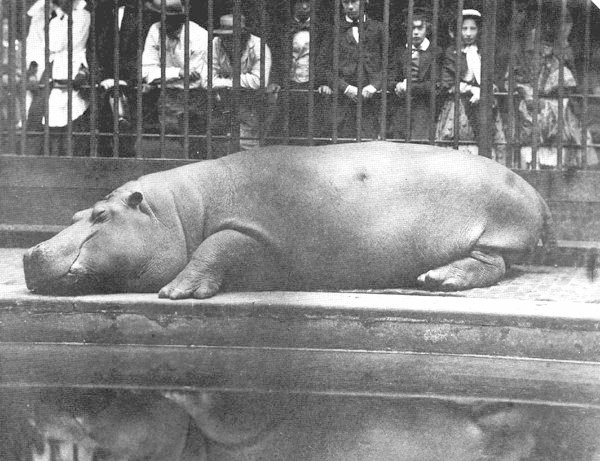
Meanwhile, Burnham and Broussard were devoting time to their respective and somewhat busy lives. At that point, a new figure entered the fray for the New Food Society, a writer and inventor by the name of Eliot Lord. Unfortunately, his forward style was not to Burnham and Broussard’s liking, and he operated more in partnership with Duquesne.
It appeared the men were diverging as a team, and that hippos would never wind up on the plates of needy patriots.
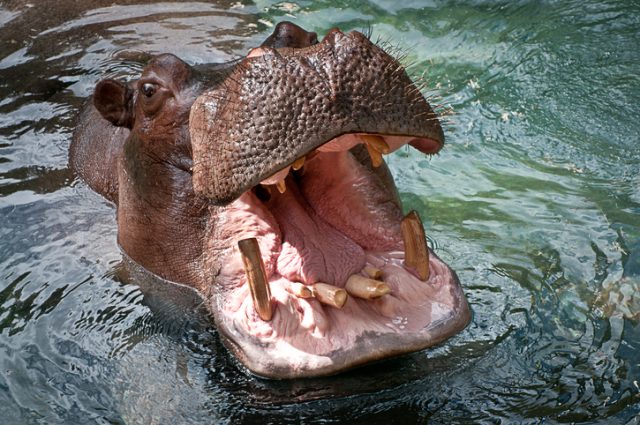
There was, of course, another factor that put a fly in the African ointment… the outbreak of war. Duquesne was carrying with him the trauma of the Second Boer War. His family had reportedly been brutalized and murdered by British soldiers. At least that was the picture painted by Clement Wood in a 1932 account, researched by Mooallem.
Duquesne had a reputation for embellishing his personal history, though. His partners were ardent Americans, but Duquesne’s loyalties were more divided.
World War One saw him adopt the alias of Captain Claude Stoughton, a British military man. The “Black Panther of the Veld” was back in action as a saboteur. In 1917 he was investigated by the New York City Police’s bomb squad, who uncovered a network of secret identities and evidence of violence happening in the name of German supremacy.
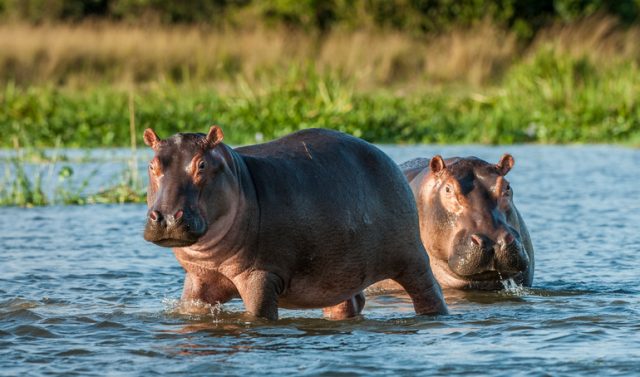
He was arrested but famously pretended to be paralyzed, using this subterfuge to escape to Europe. Eventually he was caught as ringleader of the Duquesne Spy Ring in 1941, one war later, and sent down for 18 years. Peter Duffy’s 2014 book Double Agent focused on William Sebold, who worked with the FBI to topple the ring.
The Daily Mail published a piece on the book, in which the writer observed that “The timely arrests served to deprive Adolf Hitler of the help of spies at the time he would need it the most, the convictions coming down on December 12, 1941, one day after war had been formally declared against Germany and Italy by the United States.”
By this point, the idea of hippos as a solution to the food crisis had been kicked into the long grass, along with the water hyacinths. Factory farming and mass production processes had given the cow a new lease of life, or should that be death?
The dreams of Burnham and Broussard would go unfulfilled. All three principal players in the saga had made achievements following different roads. However, that one strange chapter featuring hippos will remain a fascinating footnote in their biographies.
Steve Palace is a writer, journalist and comedian from the UK. Sites he contributes to include The Vintage News, Art Knews Magazine and The Hollywood News. His short fiction has been published as part of the Iris Wildthyme range from Obverse Books
